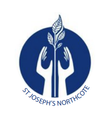WELLBEING & LEARNING DIVERSITY

BIBLIOTHERAPY
-------------------------------------------------------------------
New Interns at ACU Melbourne Pscychology Clinic (MPC) are ready to gain experience in child focused intervention through the Bibliography program.
This program suits children aged 4 - 10 years and involves using a thematic based e-book and accompanying reflection activities to explore a variety of topics. The area of focus can be individualised to suit individual needs.
Parents interested in this intervention for their child can email or call the Clinic with any queries or to register. The Interns will continue to accept new participants until capacity is reached. Cost is $20 per session or $10 for HCC holders. Interns run the sessions over Zoom via ACU's Telehealth service.
See the flyer below for more information!
Coping Strategies for Families and Children during times of change
Integrating Principles of PERMA
(The PERMA Model represents the five core elements of happiness and well-being. PERMA basically stands for Positive Emotion,Engagement, Relationships, Meaning and Accomplishments. American psychologist and educator Martin Seligman designed the PERMA Model.)
- Prepare your child in advance as best you can, by talking with them about the anticipated change/changes.
- Be open to discussions with your child and potential questions from them.
- Listen actively, be completely present with your child.
- Reassure your child and encourage open, non-judgemental, empathic conversation with them.
- Be there for your child. Be a strong and positive force for good, a source of support, consistency and continuity. Children need this source from which to grow, anchor and navigate themselves, knowing they have a strong foundation of safety and security.
- Model positive coping strategies and tools.
- Boundaries: What are they? Create them, convey them when necessary, protect them, reset when necessary.
- Advocacy: for you, your child and your family.
- Encourage a sense of purpose.
- Encourage daily positive habits (e.g., breakfast together, quiet quality time, debriefing the day, a walk, homework time together, creative/recreational hobbies etc). Positive daily habits create structure and enable quality time, connection, trust, an opportunity to strengthen bonds, and, increase cognitive capacity/space for other things.
- Build and add to an Emotional Toolkit: Strategies to cope with stress/anxiety, change.
- Mindfulness activities to help encourage present moment, quality time e.g., colouring in, doodling, painting, drawing.
- Look at photos of positive, happy memories.
- Journaling: daily, nightly and/or weekly.
- Deep breathing exercises (e.g., inhale across 6 secs, hold for 3, exhale across 6 secs, rest for 3).
- Reflection: Internal Resources: think of a time of change in your life when you showed resilience, courage and strength. How did you overcome this time?
- Strengths: what are your Strengths? What are your ‘Superstrengths’ that will help you overcome this time of change?
- Remember self-care.
- Positive self-talk: Kind, Empathic, Compassionate self-talk.
- Gratitude journal: keep a journal and write about the things (big & little) in your life you feel grateful for.
- Cultivate/strengthen a sense of belonging and connectedness.
- Connect with Mother Nature (gardening, tending to indoor plants, visiting the ocean.
- Creative therapy (art, music, dance etc).
- Books about change.


